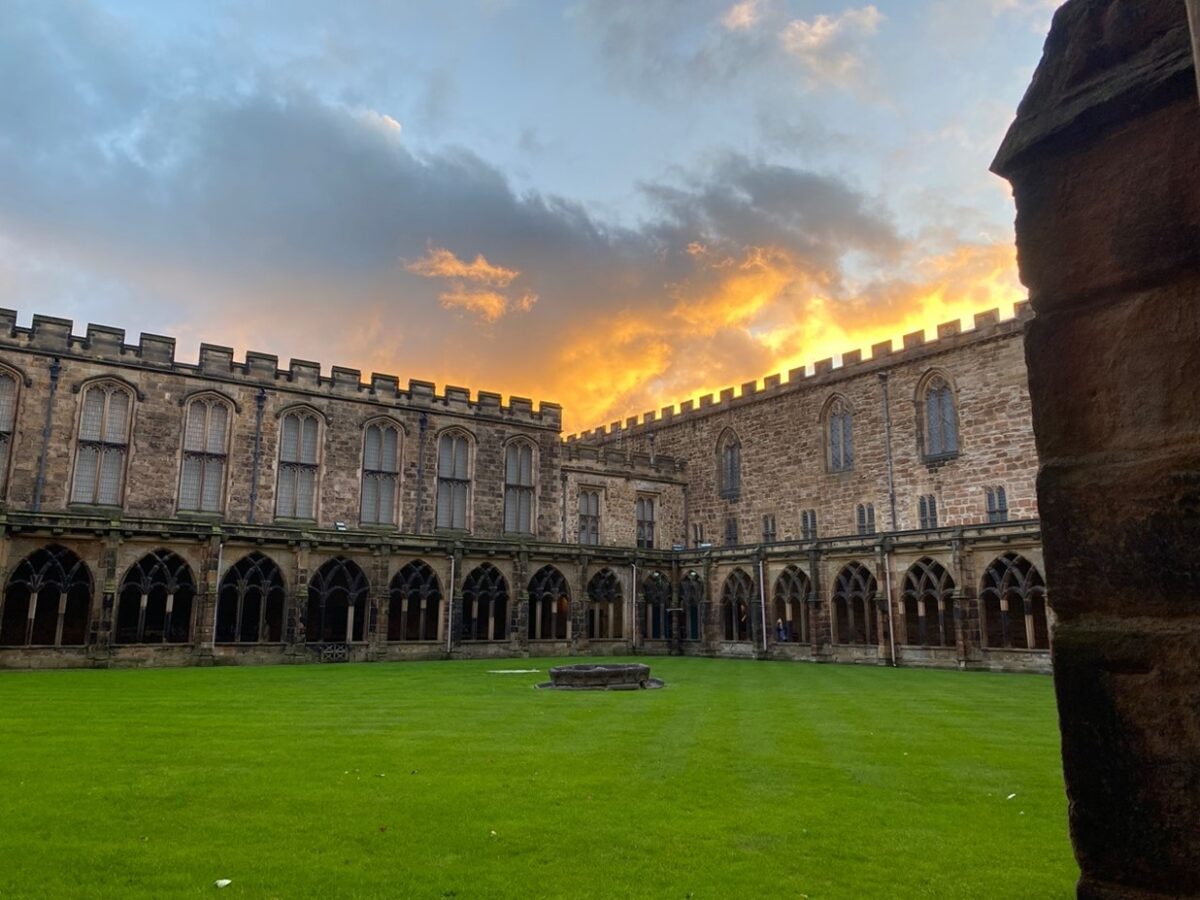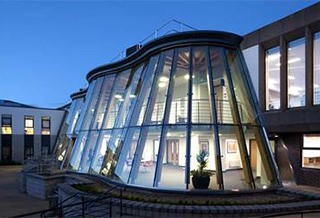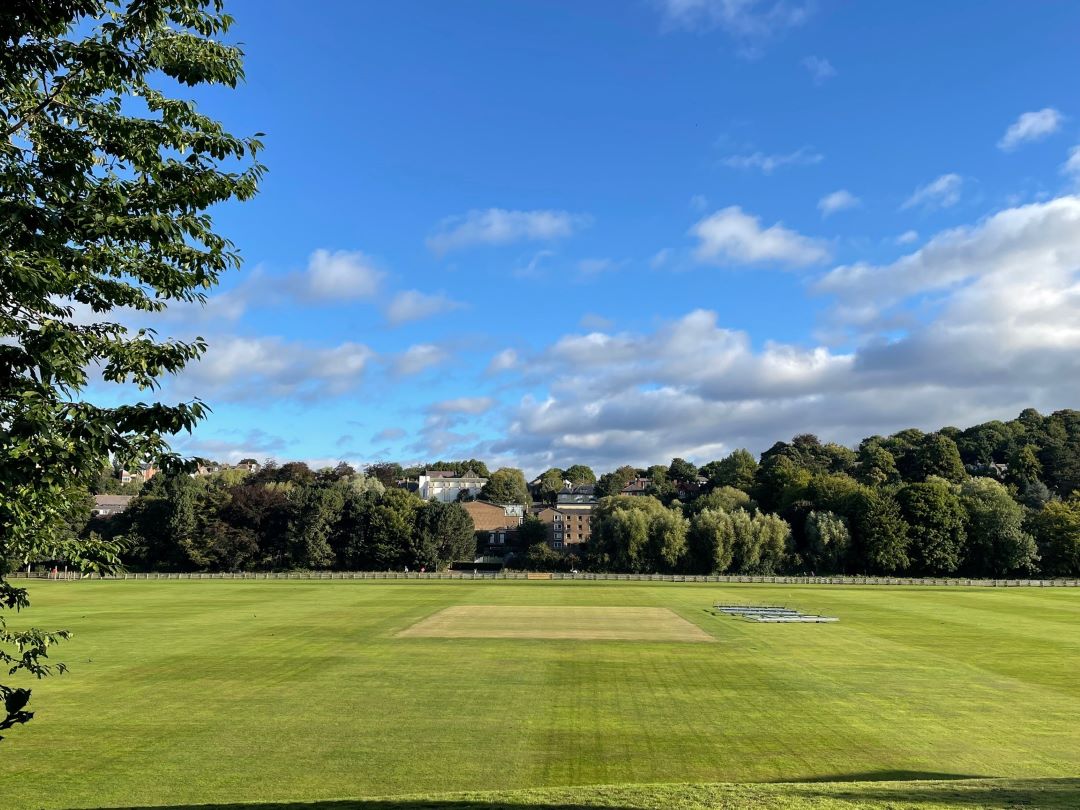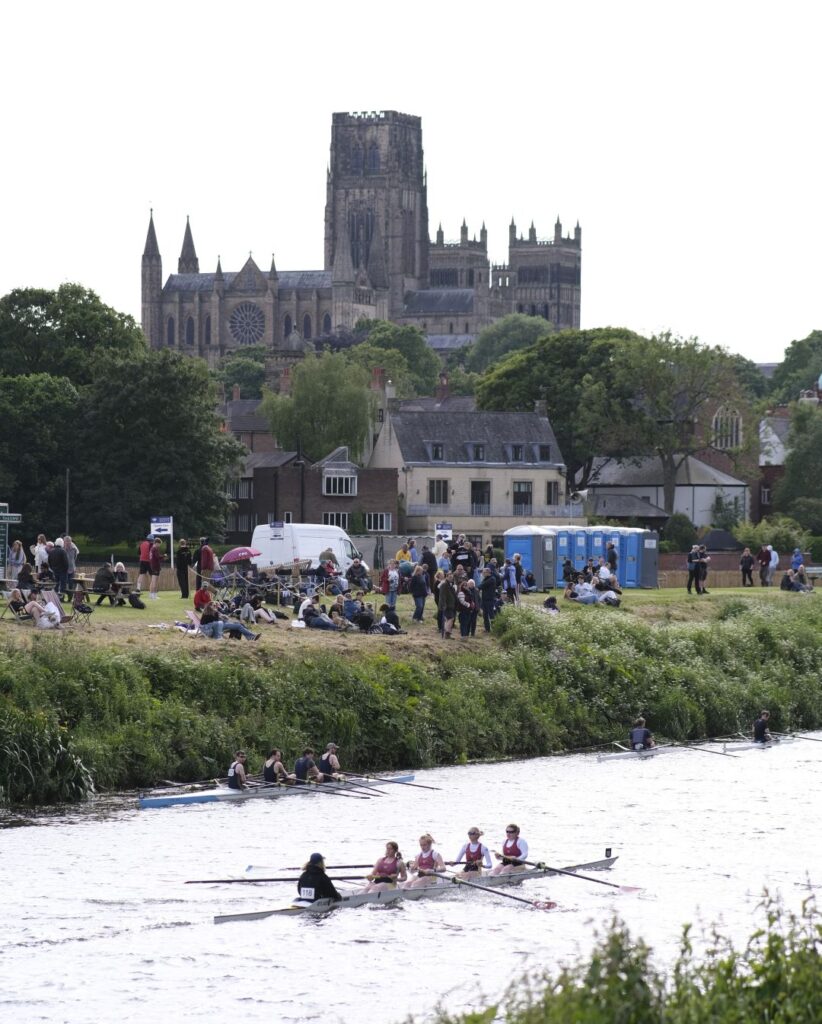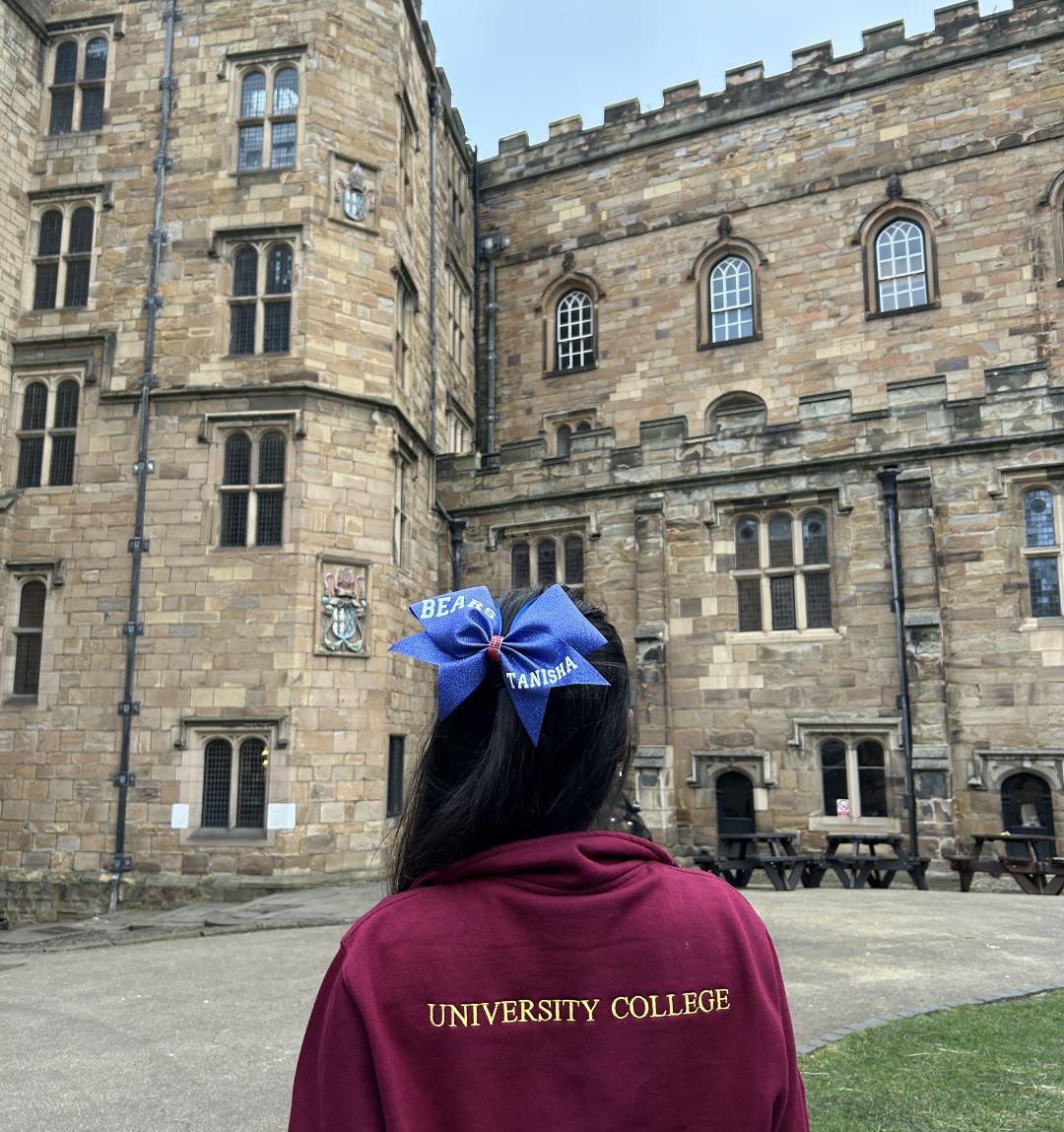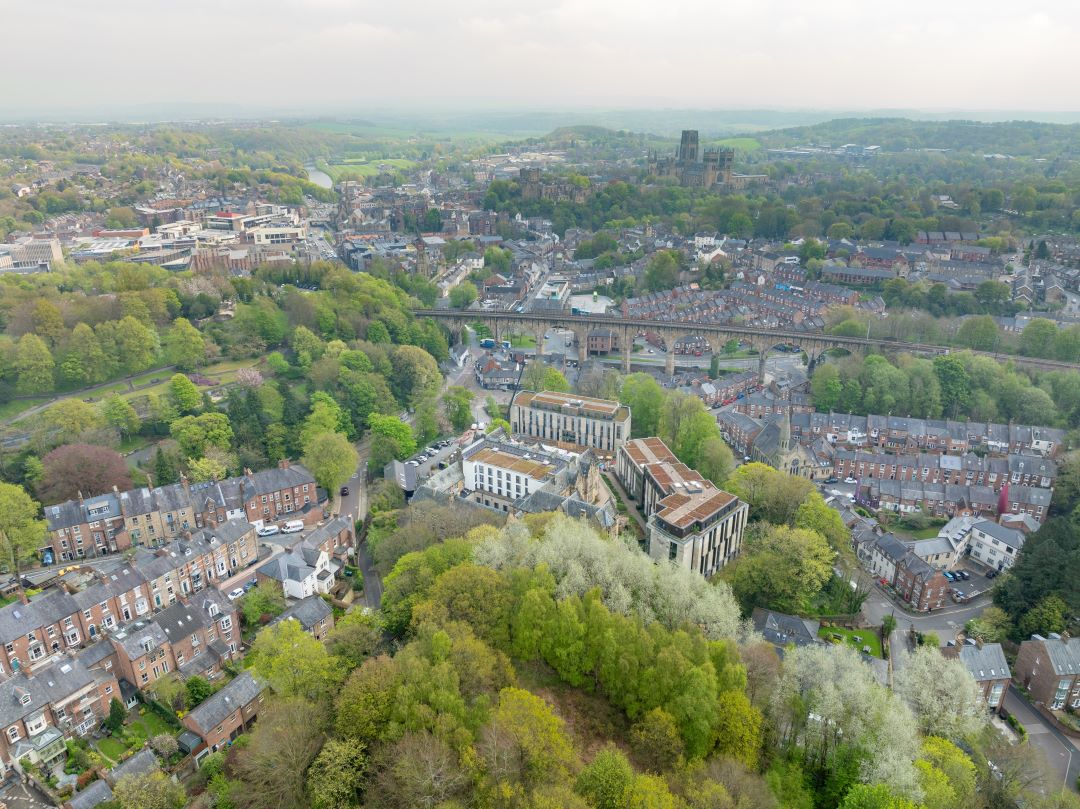Why I chose an MSc in Developmental Psychopathology
Hi all! I wanted to share about why I decided to study Developmental Psychopathology at Durham University. If you’re curious about what it’s like, here’s my story – and spoiler alert: it’s been amazing!
What drew me to this programme, and why Durham
I’ve always been curious by how our minds develop. That’s why I decided to study Developmental Psychopathology. It’s the perfect blend of what I’m passionate about – understanding mental health and how early experiences can shape us.
Durham caught my eye for a couple of reasons. First off, it’s one of the top-ranked universities, and the Psychology department has a good reputation. I wanted to study somewhere that’s known for being strong academically, and Durham didn’t disappoint.
Not to mention that Durham as a city is very charming! It’s small, historic, and absolutely beautiful. I’m not a “big city” kind of person, so the calm, cosy vibe of Durham was ideal for me. And even though it’s small, it’s close to bigger cities like Newcastle and Leeds, which is perfect when you need a change of scenery or a weekend escape.
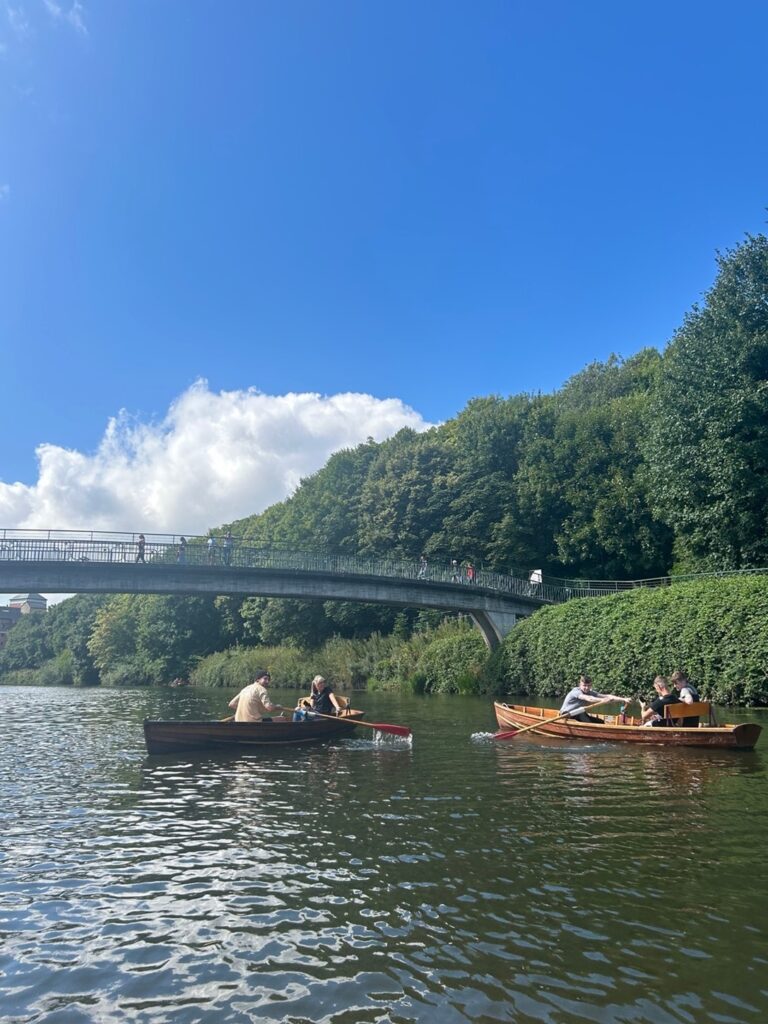
Taken whilst rowing with friends along the riverside in Durham in the summer.
Colleges
And the college system here? It’s such a great way to make friends, and a place where you can dive into your interests, with loads of great facilities to support you – it’s like a close community.
From undergrad to postgrad: my journey so far
Before Durham, I did my undergraduate degree in Psychology at another UK university. My previous university and Durham have a pretty similar in vibe – they’re both small, friendly cities with beautiful surroundings. The transition to Durham worked for me.
I’ve always known I wanted to become a psychologist, and going for a postgraduate degree was the next step toward that goal. Plus, in today’s competitive job market, having a postgraduate qualification definitely gives you an edge. I wanted to deepen my knowledge and skills, especially in the areas of mental health and development, so here I am!
What I hope to achieve
What am I hoping to get out of this programme? A lot, honestly. I’m really excited to learn more about how people develop, both in typical and atypical ways. This year has been full of learning – everything from theory to research – and I’m definitely feeling more confident in my skills.
After I graduate, I’d love to move into a more practical, clinical role. I want to take all this knowledge and apply it to help people, especially children and adolescents, navigate developmental challenges. This programme is giving me the foundation I need to make that happen, and I can’t wait to see where it takes me.
So, that’s a bit about my journey so far at Durham. It’s been such a great experience academically, but also personally. It’s a place that’s not just shaping my career but also my life. If you’re considering Durham, I’d definitely recommend it!
And a fun fact about the photo of Durham Cathedral (at top of blog) taken at sunset – This is one of the spots where Harry Potter was filmed, so don’t be surprised if you see people waving wands and striking wizard poses inside!
Discover more
Read about the MSc in Developmental Psychopathology here.
Read about Durham’s department of Psychology here.
Create your own personalised prospectus here
To find out more about student life in Durham, follow our students on Instagram, TikTok and YouTube
